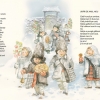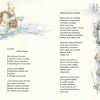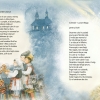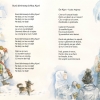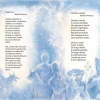 292374
292374
Public and Religious Holidays
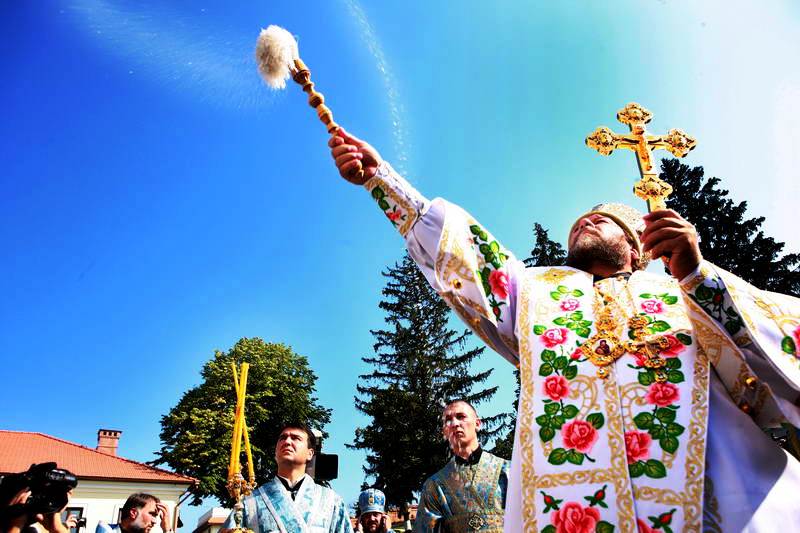
Christian religious holidays are, first of all, those of the Twelve Great Feasts of the Christian Year (twelve most important after the Easter holidays in the Orthodox Church - Christmas, Epiphany, Purification of the Blessed Virgin Mary, Annunciation Day, etc.), the days of honoring the memory of the saints, who for various reasons were canonized by the Church, such as St. Basil the Great, St. John's, St. Peter and Paul, and others.
Despite the fact that there are a lot of days of honoring the Saints in the church calendar of orthodox believers, the Moldavians usually celebrate only the most important of them. It should be said that calendar orthodox holidays are observed mostly according to the Old Style (established by the Rome Emperor Julius Caesar on the 1st of January in 46 BC). The New Style, according to which the Catholics celebrate church holidays, was introduced in 1582 by the Pope Gregory XIII.
The most significant Christian holidays accept Easter are holidays included into the Twelve Great Feasts of Christian Year. They represent the real formula of social life and involve customs, ritual sacramentals and a lot of believes. Below we list religious holidays in the order of occurrence of the events related to the names of the central Christian figures – Virgin Mary and Jesus the Christ: Nativity of Blessed Virgin (September, 21), Exaltation of the Holy Cross (September, 27), Presentation of the Virgin Mary (December, 4), Christmas (January, 7), Epiphany (January, 19), Meeting of Our Lord Jesus the Christ (February, 15), Annunciation Day (April, 7), Palm Sunday – Jesus’ entrance to the Holy City of Jerusalem (Sunday forgoing the Easter Sunday), The Ascension of Christ (fortieth day after Easter, Thursday always), Whitsunday (fiftieth day after Easter) The Holy Transfiguration of Jesus the Christ (August, 19), Assumption of Virgin Mary (August, 28). The holidays are tightly connected with various believes and are organized in the forms of different folk performances, sacramentals and other spectacular actions. These holidays preserved unchanged traditions of our ancestors.
The calendar religious holidays can be also classified according to the seasons. In spring and in summer the Moldavians celebrate Forty Martyrs’ Day, the Annunciation, Palm Sunday, Easter, Parents' Day (Memorial Easter), Whitsunday, St. John the Baptist’s Day, the Holy Apostles Peter and Paul’s Day, St. Elijah’s Day, St. Foka’s Day, St. Mary Magdalene’s Day, St. Panteleimon’s Day, etc. In autumn and in winter Nativity of Blessed Virgin, the Exaltation of the Cross, The Presentation of the Virgin Mary, Christmas, Epiphany, Meeting of Our Lord, St. Demetrius’s Day, the Archangels Michael and Gabriel’s Day, St. Andrew’s Day, St. Nicholas’ Day, Spyridon the Wonderworker’s Day, St. Ignatius’ Day, St. Basil’s Day and others are observed. All members of a family together with relatives take part in the celebration. Traditionally, the feast on the occasion of the greatest holidays is blessed by the local priest. Religious holidays are accompanied by the series of special customs and ceremonies such as giving presents, cooking of traditional meals (kolach), blessings of dwellings and consecration of churches, commemoration of dead relatives, etc.
În contextul lansării programului ”Satul European”, ce probleme vitale există în localitatea dumneavoastră?
- Statut:
- Sat
- Prima atestare:
- 1772
- Populația:
- 1401 locuitori
Negreşti este un sat şi comună din raionul Străşeni. Negreşti este unicul sat din comuna cu acelaşi nume. Localitatea se află la distanța de 3 km de orașul Strășeni și la 26 km de Chișinău. Conform datelor recensămîntului din anul 2004, populaţia satului constituia 1401 oameni. Satul Negreşti a fost menționat documentar în anul 1772.





 16 noiembrie - Calendarul celor mai importante evenimente din trecut și prezent
16 noiembrie - Calendarul celor mai importante evenimente din trecut și prezent  Ce evenimente culturale vor avea loc în ziua de 16 noiembrie
Ce evenimente culturale vor avea loc în ziua de 16 noiembrie  Moldografia: Vedere spre satul Pociumbeni, Rîșcani
Moldografia: Vedere spre satul Pociumbeni, Rîșcani  Victoria moldovenilor la Cătlăbuga
Victoria moldovenilor la Cătlăbuga 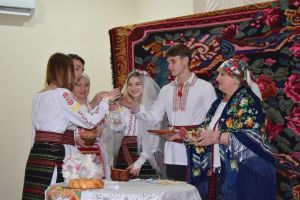 Liceul „Ștefan cel Mare” și muzeul Drochia, împreună pentru a păstra tradițiile…
Liceul „Ștefan cel Mare” și muzeul Drochia, împreună pentru a păstra tradițiile…  Cum pot fi utilizate frunzele uscate
Cum pot fi utilizate frunzele uscate  Ștefan I Mușat – un domnitor moldovean demn și viteaz
Ștefan I Mușat – un domnitor moldovean demn și viteaz  Terciurile – simplu și folositor
Terciurile – simplu și folositor 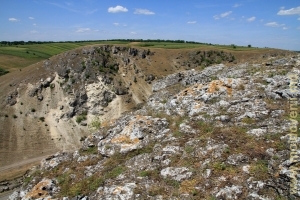 Toltrele moldoveneşti ‒ vom reuşi oare să le păstrăm? (Foto)
Toltrele moldoveneşti ‒ vom reuşi oare să le păstrăm? (Foto)  17 noiembrie - Calendarul celor mai importante evenimente din trecut și prezent
17 noiembrie - Calendarul celor mai importante evenimente din trecut și prezent  MELODIA ZILEI: Natalia Olaru - Scumpi amici
MELODIA ZILEI: Natalia Olaru - Scumpi amici  Moldografia: Peisaj de primăvară, în apropierea satului Voroneț, Rezina
Moldografia: Peisaj de primăvară, în apropierea satului Voroneț, Rezina 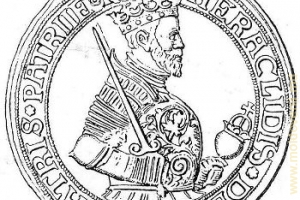 Despot Vodă – 465 de ani de la înscăunarea unui aventurier pe tronul Moldovei
Despot Vodă – 465 de ani de la înscăunarea unui aventurier pe tronul Moldovei 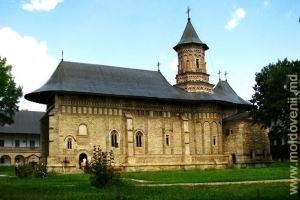 Mănăstirea Neamț - o cronică a Moldovei în piatră
Mănăstirea Neamț - o cronică a Moldovei în piatră  18 noiembrie - Calendarul celor mai importante evenimente din trecut și prezent
18 noiembrie - Calendarul celor mai importante evenimente din trecut și prezent  MELODIA ZILEI: Cuibul - Orașul
MELODIA ZILEI: Cuibul - Orașul  Cum a votat Moldova la ONU asupra rezoluției privind combaterea glorificării naz…
Cum a votat Moldova la ONU asupra rezoluției privind combaterea glorificării naz… 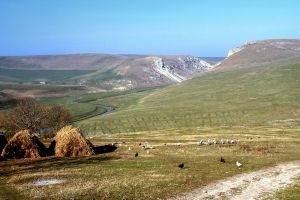 Moldografia: Defileul din toltre, sus de rîul Ciuhur, în preajma satului Horodiș…
Moldografia: Defileul din toltre, sus de rîul Ciuhur, în preajma satului Horodiș… 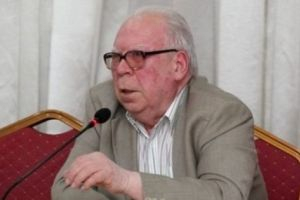 Ivan Grec: „Victoria lui Alexandr Stoianoglo în alegerile din Moldova a fost un…
Ivan Grec: „Victoria lui Alexandr Stoianoglo în alegerile din Moldova a fost un…  La mulţi ani, Diana Grigor!
La mulţi ani, Diana Grigor! 